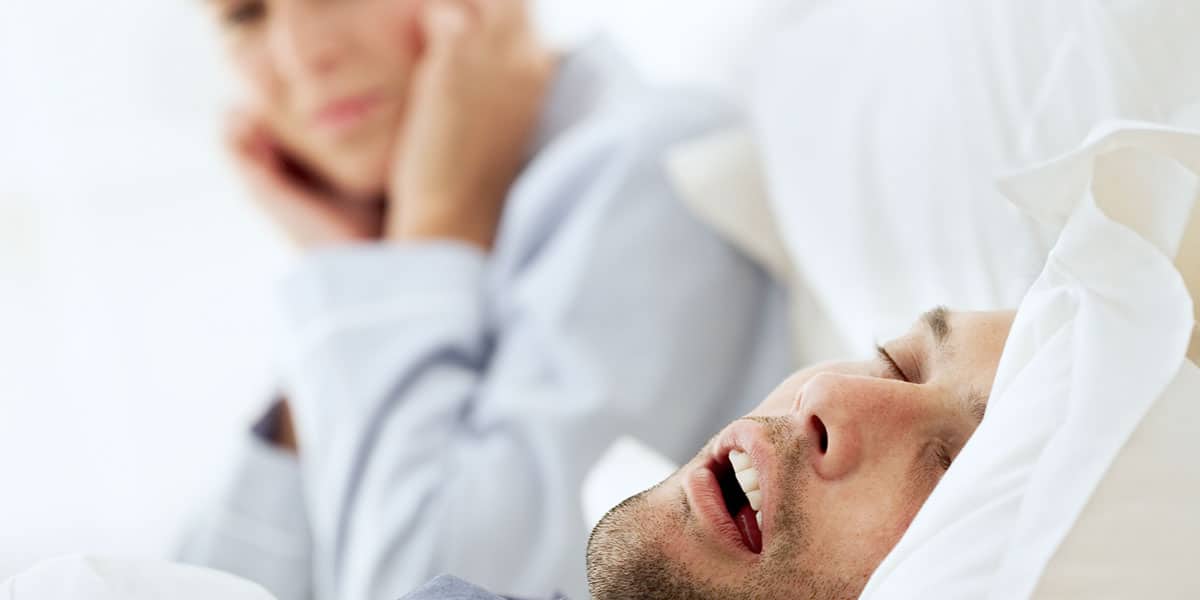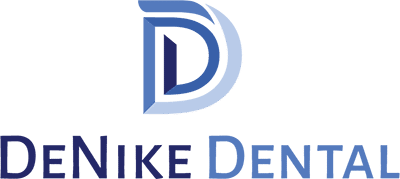
DeNike Dental provides services for sleep apnea in Emerson, NJ. Call 201-599-0001 to learn more and schedule your appointment.
Sleep apnea can cause a significant impact on a patient’s quality of life. Many times, patients are completely unaware that they even have sleep apnea––the only sign of the condition they experience is a persistent feeling of exhaustion throughout the day, even after a full night of sleep.
When a patient has sleep apnea, breathing stops or becomes shallow; this jolts the body out of deep sleep. Patients usually don’t recall these episodes, even if there are hundreds of them over the course of a night. The result is that they never feel well-rested and lack the energy to live their lives to the fullest.
DeNike Dental uses cone beam scanner technology to assist us in diagnosing sleep apnea. Using this device, we can generate a 3D model of your airway to diagnose the severity of your sleep apnea and determine the type of treatment that is needed. Potential treatments include:
- Oral Appliance Therapy (OAT), a removable appliance that adjusts the position of the lower jaw and tongue to minimize airway obstruction and stop snoring. Because it is a non-invasive and affordable solution, this is usually our first line of treatment.
- Continuous Positive Airway Pressure (CPAP) machine, which blows air into your throat through a mask to keep your airway open and unobstructed while you sleep. These machines are used for moderate to severe sleep apnea.
- Surgical Treatment is used when other options have failed. This may involve shrinking, stiffening, or removing excess tissue in order to widen the breathing passages.
Sleep apnea and snoring are closely related, as snoring is also caused by a narrowing or blocked airway, which vibrates the soft palate and throat tissue. Causes of snoring include:
- Inflammation of the tonsils or other tissues in the mouth, nose, or throat
- Colds and allergies, which cause blocked nasal passages
- Lack of muscle tone
- Obesity
- Certain medications
Oral Appliance Therapy is an effective treatment option for snoring no matter what the cause.
Call 201-599-0001 to schedule your appointment.
Frequently Asked Questions About Sleep Apnea
What are the warning signs of sleep apnea?
It sometimes takes years for patients to be diagnosed with sleep apnea because the only symptom they experience is feeling tired throughout the day. Other signs include loud, frequent snoring, waking up gasping for air or choking, never feeling well-rested in the morning, insomnia, and morning headaches.
What is the main cause of sleep apnea?
Sleep apnea is caused by the soft tissue in the airway becoming more relaxed while you sleep and blocking the flow of air. Obesity is often a major factor, but smoking, alcohol use, and a family history or disordered sleep may also cause sleep apnea.
What happens with untreated sleep apnea?
Patients who do not treat their sleep apnea see a decrease in quality of life. Feeling exhausted throughout the day makes it difficult to concentrate, impacts their job performance, and can even cause mood disorders. Lack of sleep is also linked to diabetes, high blood pressure, heart disease, and stroke. Patients with sleep apnea are even at a higher risk for automobile accidents.
How do you fix sleep apnea?
There are a few different treatments for sleep apnea, but one of the quickest, most effective, and most comfortable solutions is Oral Appliance Therapy. These devices help position the lower jaw in such a way that the soft tissues in the throat are activated and the airway remains open throughout the night.
Is there a surgery for sleep apnea?
If other methods of treatment have not improved your sleep apnea symptoms, you may want to consider surgery. The most common surgery for sleep apnea removes excess soft tissue, including the tonsils, to prevent the airway from collapsing during sleep.
How can I treat sleep apnea at home without CPAP?
Many patients wish to avoid having to use a CPAP machine because they find them cumbersome and uncomfortable. Oral Appliance Therapy is a more comfortable solution for sleep apnea that produces excellent results for most patients, eliminating the need for CPAP therapy.
Do mouthguards help with sleep apnea?
It depends on what you mean by the term mouthguard. Oral appliances designed for sleep apnea are different from the types of mouthguards used to prevent teeth grinding or for protecting you from injury during sports. They’re meant to reposition the lower jaw in a way that keeps the airway open. Often, people refer to these appliances as mouthguards or nightguards, which can cause some confusion.

